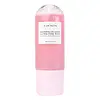What's inside
What's inside
 Key Ingredients
Key Ingredients

 Benefits
Benefits

 Concerns
Concerns

 Ingredients Side-by-side
Ingredients Side-by-side

Water
Skin ConditioningCentella Asiatica Extract
CleansingPropanediol
SolventLavandula Angustifolia Flower/Leaf/Stem Extract
MaskingCitrus Aurantium Amara Leaf/Twig Extract
Skin ConditioningVinegar Extract
EmollientSea Salt Extract
Skin ConditioningLactobacillus Ferment
Skin ConditioningCucumis Sativus Fruit Water
Skin ConditioningCentaurea Cyanus Flower Extract
AstringentHydroxypropyltrimonium Hyaluronate
Sodium Hyaluronate
HumectantCitrus Aurantium Dulcis Peel Extract
Emulsion StabilisingCitrus Aurantium Bergamia Fruit Extract
Skin ConditioningSodium Acetylated Hyaluronate
HumectantHydrolyzed Hyaluronic Acid
HumectantTocopherol
AntioxidantStyrax Tonkinensis Resin Extract
PerfumingRosmarinus Officinalis Leaf Extract
AntimicrobialHypochlorous Acid
AntiseborrhoeicHyaluronic Acid
HumectantCoriandrum Sativum Fruit/Leaf Extract
AntiseborrhoeicCitrus Aurantium Amara Flower Extract
RefreshingSodium Hyaluronate Crosspolymer
HumectantHydrolyzed Sodium Hyaluronate
Skin ConditioningPanthenol
Skin ConditioningMineral Salts
Skin ConditioningPotassium Hyaluronate
Skin ConditioningSucrose
HumectantSodium Citrate
BufferingPolyglyceryl-10 Laurate
Skin ConditioningCeramide AP
Skin Conditioning1,2-Hexanediol
Skin ConditioningEthylhexylglycerin
Skin ConditioningCaprylic/Capric Triglyceride
MaskingCitric Acid
BufferingPhenoxyethanol
PreservativeLinalool
PerfumingLimonene
PerfumingGeraniol
PerfumingWater, Centella Asiatica Extract, Propanediol, Lavandula Angustifolia Flower/Leaf/Stem Extract, Citrus Aurantium Amara Leaf/Twig Extract, Vinegar Extract, Sea Salt Extract, Lactobacillus Ferment, Cucumis Sativus Fruit Water, Centaurea Cyanus Flower Extract, Hydroxypropyltrimonium Hyaluronate, Sodium Hyaluronate, Citrus Aurantium Dulcis Peel Extract, Citrus Aurantium Bergamia Fruit Extract, Sodium Acetylated Hyaluronate, Hydrolyzed Hyaluronic Acid, Tocopherol, Styrax Tonkinensis Resin Extract, Rosmarinus Officinalis Leaf Extract, Hypochlorous Acid, Hyaluronic Acid, Coriandrum Sativum Fruit/Leaf Extract, Citrus Aurantium Amara Flower Extract, Sodium Hyaluronate Crosspolymer, Hydrolyzed Sodium Hyaluronate, Panthenol, Mineral Salts, Potassium Hyaluronate, Sucrose, Sodium Citrate, Polyglyceryl-10 Laurate, Ceramide AP, 1,2-Hexanediol, Ethylhexylglycerin, Caprylic/Capric Triglyceride, Citric Acid, Phenoxyethanol, Linalool, Limonene, Geraniol
Citrullus Lanatus Fruit Extract
Skin ConditioningCitrullus Lanatus Seed Oil
EmollientOryza Sativa Germ Oil
EmollientMoringa Oleifera Seed Extract
Skin ConditioningGlycine Soja Sterols
EmollientOryza Sativa Germ Extract
EmollientCucurbita Pepo Seed Oil
EmollientLithospermum Erythrorhizon Root Extract
Skin ConditioningAlkanna Tinctoria Root Extract
Skin ConditioningHyaluronic Acid
HumectantSoy Amino Acids
Skin ConditioningFructooligosaccharides
HumectantCentella Asiatica Extract
CleansingHibiscus Sabdariffa Flower Extract
Skin ConditioningNatto Gum
Vinegar
Sorbitan Oleate
EmulsifyingScutellaria Baicalensis Root Extract
AstringentPaeonia Suffruticosa Root Extract
Skin ProtectingGlycyrrhiza Glabra Root Extract
BleachingBeta-Glucan
Skin ConditioningBrassica Oleracea Capitata Leaf Extract
Skin ConditioningIpomoea Batatas Root Extract
Skin ConditioningParfum
MaskingCitrullus Lanatus Fruit Extract, Citrullus Lanatus Seed Oil, Oryza Sativa Germ Oil, Moringa Oleifera Seed Extract, Glycine Soja Sterols, Oryza Sativa Germ Extract, Cucurbita Pepo Seed Oil, Lithospermum Erythrorhizon Root Extract, Alkanna Tinctoria Root Extract, Hyaluronic Acid, Soy Amino Acids, Fructooligosaccharides, Centella Asiatica Extract, Hibiscus Sabdariffa Flower Extract, Natto Gum, Vinegar, Sorbitan Oleate, Scutellaria Baicalensis Root Extract, Paeonia Suffruticosa Root Extract, Glycyrrhiza Glabra Root Extract, Beta-Glucan, Brassica Oleracea Capitata Leaf Extract, Ipomoea Batatas Root Extract, Parfum
 Reviews
Reviews

Alternatives
Ingredients Explained
These ingredients are found in both products.
Ingredients higher up in an ingredient list are typically present in a larger amount.
Centella Asiatica Extract (Centella) is derived from an herb native to Southeast Asia. It is famous for its anti-inflammatory and soothing properties.
Centella is rich in antioxidants and amino acids, such as Madecassic Acid and Asiaticoside.
Studies show the compounds in centella help with:
The combination of all these properties makes centella effective at soothing, hydrating, and protecting the skin.
Other great components of centella include Vitamin A, vitamin C, several B vitamins, and Asiatic Acid.
Fun fact: Centella has been used as a medicine and in food for many centuries. As a medicine, it is used to treat burns, scratches, and wounds.
Learn more about Centella Asiatica ExtractHyaluronic acid is naturally found in healthy skin. It is a humectant, meaning it draws moisture to your skin.
This ingredient helps hydrate, soothe, and protect the skin.
What makes hyaluronic acid so hydrating? It has the capacity to bind or hold large amounts of water.
Fun fact: It is already naturally found in our bodies, such as the fluids of our eyes and our joints.
Studies find this ingredient to have anti-inflammatory and anti-microbial properties. This can help speed up wound-healing.
Hyaluronic acid can be irritating if the molecule has a low-molecular weight, or if the molecules are small.
One study found low-molecular weight hyaluronic acid to be pro-inflammatory, meaning some people may experience irritation. This is because our bodies use hyaluronic acid in the wound-healing process to signal to our bodies, via irritation, that something needs healing.
The same study found high-molecular weight hyaluronic acid to be anti-inflammatory.
These are some other common types of Hyaluronic Acid:
Learn more about Hyaluronic Acid